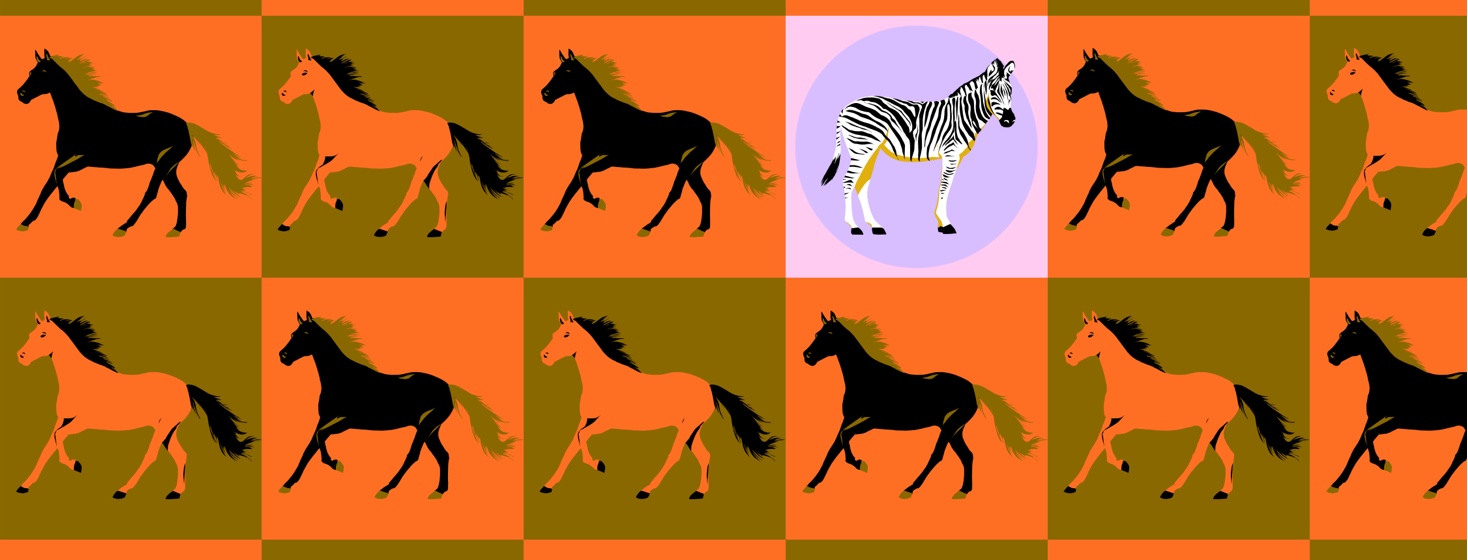Jumping to Conclusions: Thinking of Zebras, Not Horses
The other day I was connecting with a friend of mine who was having a rather bizarre morning. She was going about her day when her husband reported that someone had run into their mailbox. To be specific, “an older woman.” The woman stopped, talked to her husband and went on her way. She and I puzzled over how someone would do so, given that they live on a cul-de-sac, it was a bright and highly visible morning, and the mailbox is set back from the lawn.
My friend went through typical causes for why a person would run into a mailbox: distraction, glare, etc. I proceeded to ask things, such as “How old are we talking?” “Did she seem out of sorts or combative?” — you may be able to gauge where I’m going with this. As my friend and I were puzzling over this scenario, I had already jumped to “Alzheimer’s.”
Zebras vs. horses: Making assumptions about an Alzheimer's diagnosis
Now, obviously, I’m not this woman’s doctor or anyone’s doctor, I was merely listening to a story. As soon as I thought it and felt that familiar sympathy for this woman and her family, I was shocked at my thought process.
I almost immediately thought back to a favorite quote of mine, which I believe I originally heard while watching a medical drama, is frequently used in relation to the teaching of new physicians and the deductive reasoning that occurs in diagnosing a patient. (How apt!) “When you hear hoofbeats, think horses, not zebras.”
If you’re teaching doctors the power of deductive reasoning, it means that they should grasp at the next logical, plausible answer. Is it possible that hoofbeats are caused by a zebra, sure, but the odds aren’t in your favor as they are a less popular animal than the likely culprit, a horse.
It seems that, as a person who talks about this disease each day, executing ways to raise awareness and brainstorming ways to fundraise more dollars for research, I am ready to see “Alzheimer’s” as soon as I hear a report of an older person doing something odd. But of course, it’s more complicated than that.
Know the signs
The Alzheimer’s Association provides a resource called “10 Early Signs and Symptoms of Alzheimer’s,” which spells out consistent behavior that may be cause for concern. They include:1
- Memory loss that disrupts daily life
- Challenges in planning or solving problems
- Difficulty completing familiar tasks
- Confusion with time or place
- Trouble understanding visual images and spatial relationships
- New problems with words in speaking or writing
- Misplacing things and losing the ability to retrace steps
- Decreased or poor judgment
- Withdrawal from work or social activities
- Changes in mood and personality
These symptoms in a loved one could indicate a cognitive decline and he or she may need to be evaluated by a doctor. Not to mention, it’s certainly more information than I would have about a stranger.
So what happens next?
As for the mailbox, the woman later returned with money to replace it. As for me, I will be working on NOT jumping to conclusions.

Join the conversation